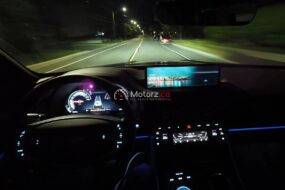The Cultural Impact of Iconic Car Commercials In the ever-evolving world of advertising, certain commercials transcend their initial purpose and become cultural phenomena. Among these, car commercials stand out for their ability to not only sell a product but also to weave themselves into the fabric of our cultural identity. Over the years, iconic car commercials have left an indelible mark on society, influencing trends, shaping perceptions, and reflecting the values of their time.
Evolution of Storytelling
Iconic car commercials are more than just a showcase of sleek vehicles; they are narratives that tap into the human experience. From the rugged terrains of off-road adventures to the sleek cityscapes of urban life, these commercials tell stories that resonate with the audience. Take, for example, the iconic Mercedes-Benz “The Best or Nothing” campaign. This series of commercials not only emphasizes the brand’s commitment to excellence but also communicates a broader message about the pursuit of perfection in all aspects of life.
Shaping Cultural Values
Car commercials often serve as mirrors reflecting societal values and aspirations. In the 1960s, muscle car commercials embodied the spirit of rebellion and freedom, appealing to a generation challenging the status quo. Fast forward to the environmentally conscious present, and car commercials highlight fuel efficiency, electric technology, and sustainable practices. The shift in focus reflects the growing awareness and importance placed on environmental issues in contemporary culture.
Iconic Jingles and Catchphrases
Who can forget the catchy jingles and memorable catchphrases that accompany some of the most iconic car commercials? These linguistic elements become ingrained in popular culture, instantly recognizable and associated with the brand. From Volkswagen’s “Think Small” to BMW’s “The Ultimate Driving Machine,” these slogans not only market the cars but become part of the cultural lexicon, transcending the advertising realm.
Cultural Diversity and Inclusion
Car commercials have also played a crucial role in reflecting and promoting cultural diversity. In recent years, there has been a notable shift towards inclusivity, with advertisements featuring diverse casts and highlighting the varied lifestyles of consumers. This not only broadens the appeal of the brand but also contributes to the broader societal conversation about representation and inclusivity.
Technological Advancements on Display
As technology evolves, car commercials serve as a visual testament to the latest innovations in the automotive industry. Advertisements for electric and autonomous vehicles showcase the cutting-edge technology that defines the present and shapes the future. These commercials not only educate consumers but also contribute to the normalization of advanced technologies, making them more accepted and integrated into everyday life.
Emotional Resonance
Iconic car commercials have a unique ability to evoke emotions, creating a lasting connection between the audience and the brand. Whether it’s the nostalgia-inducing ads that transport viewers back to their first car or the heartwarming narratives that depict the bond between a driver and their vehicle, these commercials tap into the emotional core of consumers. Such emotional resonance goes beyond mere product promotion; it establishes a sense of loyalty and affinity towards the brand.
Conclusion
In conclusion, the cultural impact of Iconic Car Commercials extends far beyond their role as marketing tools. They are storytellers, reflecting societal values, promoting diversity, and showcasing technological advancements. As these commercials continue to evolve, they will undoubtedly shape and be shaped by the cultural landscape, leaving an enduring imprint on our collective consciousness. The next time you find yourself captivated by a car commercial, remember that you’re not just witnessing a sales pitch; you’re experiencing a cultural moment that transcends the boundaries of advertising.





